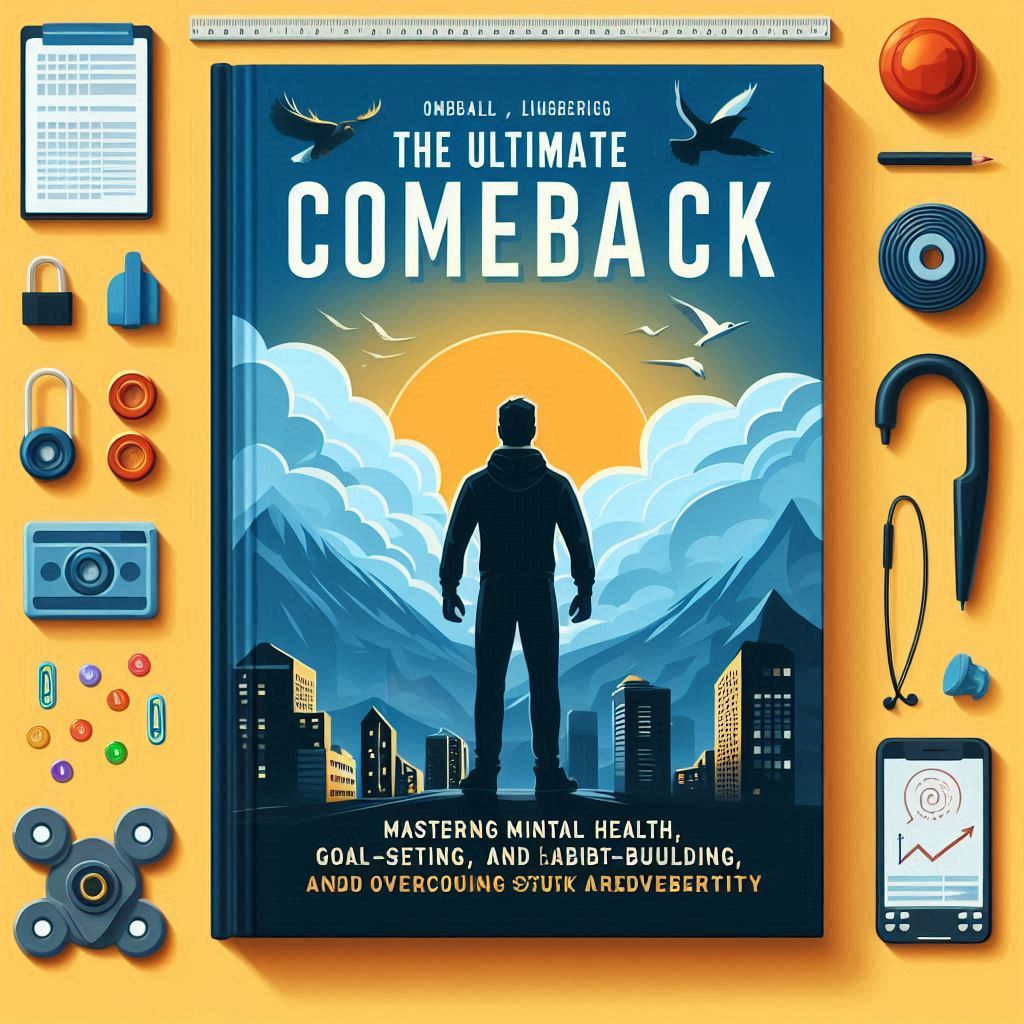The Ultimate Comeback: Mastering Mental Health, Goal-Setting, Habit-Building, and Overcoming Adversity
Life can be unpredictable, often leading us through tough times where it feels like we’re knocked down, perhaps more than once. Whether it’s a career setback, a personal loss, or a mental health struggle, bouncing back can feel overwhelming. However, with the right mindset and strategies, you can reclaim control and craft your ultimate comeback. In this article, we’ll explore how you can leverage mental health practices, goal-setting, habit-building, and resilience to turn adversity into an opportunity for growth.
1. The Foundation: Mental Health and Emotional Well-Being
Before any comeback, the first step is often healing. Mental health is the bedrock of your journey to recovery and success. Whether you’re dealing with anxiety, depression, or simply feeling overwhelmed by life’s demands, prioritizing your mental health is essential.
Steps to Strengthen Your Mental Health:
Acknowledge Your Emotions: It’s important to recognize your feelings rather than suppress them. Bottling up emotions can lead to greater stress and anxiety, so allow yourself the space to process your thoughts.
Seek Support: Whether through therapy, support groups, or confiding in loved ones, reaching out for help is not a sign of weakness but of strength. Professional guidance can offer coping mechanisms and perspective.
Practice Mindfulness: Activities like meditation, journaling, and deep breathing exercises help ground you in the present moment, reduce anxiety, and increase emotional awareness.
By prioritizing your mental health, you create the emotional stability needed to build a strong comeback.
2. Set Clear Goals: Charting the Path Forward
Once your mental health is in a better place, the next step is to set clear, actionable goals. Goals give your life direction and purpose, helping you stay focused on what truly matters. However, the key to success is setting the right kind of goals.
The Art of Effective Goal-Setting:
SMART Goals: Ensure that your goals are Specific, Measurable, Achievable, Relevant, and Time-bound. This framework provides clarity and makes progress trackable.
Break it Down: Larger goals can be daunting. Break them into smaller, more manageable steps. This makes the process less overwhelming and keeps you motivated as you achieve mini-milestones along the way.
Align with Your Values: Set goals that resonate with your personal values and aspirations. When your goals reflect what’s truly important to you, the drive to achieve them becomes intrinsic.
Goal-setting isn’t just about looking forward. It’s about creating a roadmap that gives you control over your future and allows you to envision success even when things seem difficult.
3. Build Habits: Creating Lasting Change
While goals point you in the right direction, habits are what keep you moving forward. Building habits that align with your goals makes progress automatic over time, which can be especially powerful when you’re trying to overcome adversity.
Habit-Building Strategies for Success:
Start Small: Focus on creating one small habit at a time. For example, if you want to exercise more, start with just 10 minutes a day. Small wins build momentum and confidence.
Use Triggers: Attach new habits to existing routines. If you want to start meditating, do it after a daily activity like brushing your teeth. These “habit triggers” help reinforce consistency.
Track Your Progress: Use a journal or app to track your habits and see your progress. This visual reinforcement can boost motivation and show how far you’ve come.
Habits are powerful because they put success on autopilot. Over time, even small, consistent actions can lead to significant transformations.
4. Overcoming Adversity: The Heart of the Comeback
Adversity is an inevitable part of life, but it doesn’t have to define you. In fact, overcoming adversity can be a source of immense strength and growth, propelling you towards an even better version of yourself.
Resilience-Building Techniques:
Reframe Failure: View failure not as a stopping point but as a learning experience. Every setback contains lessons that can help you grow and improve.
Practice Gratitude: Focus on what you have, rather than what you’ve lost. Gratitude shifts your mindset to positivity, which can fuel perseverance through difficult times.
Keep Moving Forward: Persistence is key. No matter how slow your progress, keep pushing forward. Every step, no matter how small, brings you closer to your ultimate comeback.

